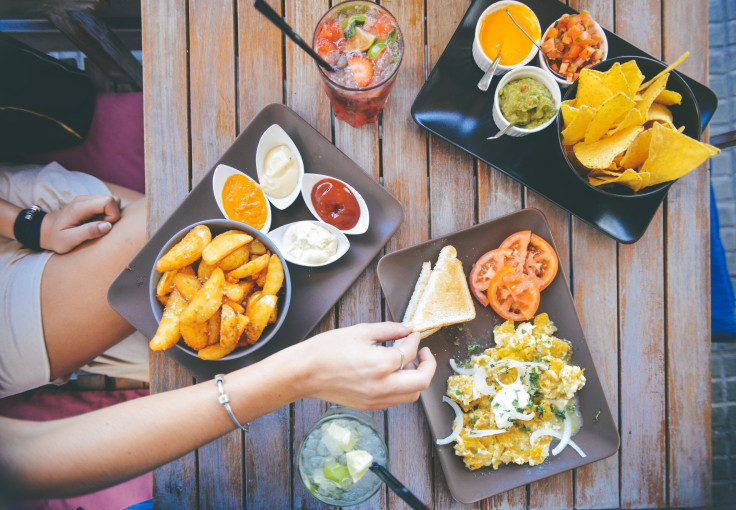Why Is There An Idea That Women Need A Lesser Serving Of Food Than Men?


So... I've lived this first hand. Let's talk about hormones and lean muscle mass for a second.
Men can thank those painfully squishy dangly bits between their legs for the ability to produce large volumes of the hormone testosterone. Testosterone aids significantly in the building and maintenance of lean muscle mass.
In general, testosterone is one of the things that leads the average man to have a lower body fat percentage than the average woman (higher concentrations of estrogen in women impact this as well).
Why does that matter?
Because it takes more calories to sustain lean muscle mass on the body than other forms of body weight. Effectively, because men a) tend to have more lean muscle mass and b) tend to have a higher percentage of their body composed of lean muscle mass, which means they need more calories to maintain that mass.
So, remember when I said I've lived this first hand? Prior to transitioning, I spent a portion of my career as a professional martial artist, which set me up for a fairly decent amount of lean muscle mass. That muscle mass piled on even more when I hung up the gloves and took up rock climbing. I ate what I wanted and in significant quantity because I had a lot of muscle mass sitting around and burning those calories. Not from the activity; just having the muscle mass burned calories.
When I started hormone replacement therapy, which includes a high dosage of an anti-androgen (it impedes the function and production of testosterone), I shed muscle mass like a dog sheds fur in July heat. I dropped from close to 180 pounds to just under 140 pounds quickly. Most of that loss was muscle mass. Without the muscle mass to sustain, I just don't need to eat as much. I don't need the fuel. I've gone from eating a foot-long sandwich to a 6-inch, and I'm functioning just fine. I look for the "small portions" sections of menus, I take home more leftovers — I just don't eat as much. If you take a look at my bloodwork, I've got about as much testosterone as most cisgender women (a little less actually) and about as much estrogen and progesterone as cisgender women, That hormonal change means, among many other things, that I have calorie needs in line with most cisgender women, which is lower than what my calorie needs were when I presented as male.
There's a dark side of this that's cultural, and I need to talk about it because it's a very real problem. The pressure on women to be slender is extraordinary. While there's some biological reality to the fact that women and men have different calorie needs, there's also this huge pressure on women to eat less to attain the beauty standard.
That pressure leads to a disproportionate rate of eating disorders (anorexia, bulimia, etc), starvation and crash dieting, and an entire industry that thrives on selling women the latest way to get thin — frequently by eating less. The extremely low-calorie diets you see advocated for frequently aren't healthy. Nor are they sustainable.
The pressure on women is constant. It's present on billboards and in every magazine, television, and banner ad that targets women as customers. It's there every time they go shopping for clothing or food, and every time they hear from yet another person about how they really should be spending some more time at the gym. The pressure is there in the choices they get to make about what to wear, the effort to find clothing that's "flattering" because god forbid that you go out in public wearing something that might reveal an "unsightly" roll or muffin top.
So, while there is some biological truth to different needs, the common public perception about how women "should" eat, and how little they should eat, is significantly leaner than biological necessity makes it. That public perception causes real damage to women and it's a problem that needs to be addressed.
More from Quora:
- What are some great fitness and nutrition tips that will help me burn fat?
- Do transgender individuals who used hormones during their transition have observations about how hormones affect behavior, cognition and emotions?
- What happens to the muscle gained from steroids after you stop taking them, assuming diet and exercise stay the same?
Published by Medicaldaily.com



























